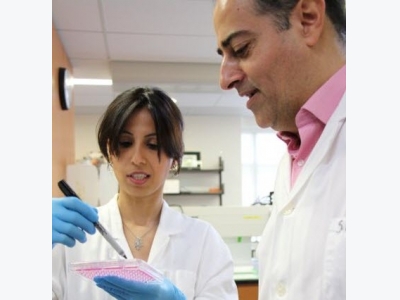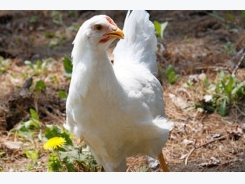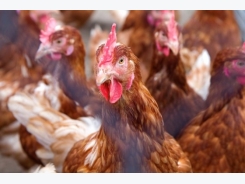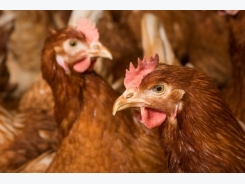Probiotics may offer alternative approach to antimicrobials

Research and innovation are key to finding alternatives to antibiotic and antimicrobial use. Researchers at the Ontario Veterinary College, University of Guelph, are studying probiotics as an alternative to traditional antimicrobials to combat pathogens including Salmonella, Campylobacter jejuni, and Clostridium perfringens in poultry.
Dr Shayan Sharif’s and one of his assistents at the lab at the University of Guelph are involved in developing probiotic formulations against Salmonella. Photo: University of Guelph
Over the last decade, Dr Shayan Sharif’s lab at the University of Guelph has been involved in developing probiotic formulations against Salmonella. “We’ve clearly shown by using combinations of different lactobacilli or lactic acid producing bacteria we can reduce colonisation or burden of salmonella in poultry quite significantly,” says Sharif. He is now turning his attention to Campylobacter jejuni, the main notifiable bacterial cause of human enteritis or foodborne illness reported to the Public Health Agency of Canada.
Huge concern to human health
Chickens can carry Campylobacter in their intestine. While they don’t show any clinical signs of the disease they can carry it throughout their lifetime. It’s not necessarily a huge concern to the poultry industry because chickens are asymptomatic but a huge concern to human health, as the bacteria can be transferred to humans through undercooked poultry, adds Sharif. Few control measures, including vaccination, biosecurity or antibiotics, deter the bacteria. Of added concern, both Campylobacter jejeuni and Salmonella can harbour and transfer antimicrobial resistance genes.
Dr Sharif’s group is taking a systematic approach to identify and test commensal bacteria from healthy chickens that have anti-Campylobacter activities and also can enhance immune responsiveness in chickens. The goal is to use these bacteria alone or in combination with candidate vaccines for their efficacy against Campylobacter. His lab is also looking at in ovo injection of probiotics, usually on day 18 when the embryo is in the egg. Initial research suggests chicken embryos ingest the probiotics and they become colonised with those bacteria over time.
Necrotic Enteritis
Next up for Dr Sharif’s lab will be work on Clostridium perfringens which can cause Necrotic Enteritis, essentially inflammation of the intestine in poultry. Necrotic Enteritis can be caused by Clostridium perfringens, but usually works with another micro-organism called Eimera or coccidia. The two usually go hand-in-hand and coccidia usually predisposes the animal to the pathogenic effects of Clostridium perfringens, notes Sharif. Coccidia is usually controlled by antimicrobials but without treatment there could be a surge in coccidiosis and Necrotic Enteritis, both of which would lead to major drop in production and increased mortality. While there are vaccines available to combat coccidiosis, this isn’t the case for Necrotic Enteritis.
Probiotics may provide an alternative to antimicrobials for reducing the burden of these common pathogens in poultry and accompanying issues of resistance, as well as potential health benefits for birds. Dr Sharif’s research includes examining the effect of probiotics on the overall health, welfare and production of poultry. “We want to know if animals as a whole are healthier, if they produce more, if there is better weight gain and if their feed conversion ratio would be better compared to chickens receiving conventional diets”. Studies will also determine if immune status is improved in birds who receive probiotics. “At the end of the day if you’re not able to make a probiotic formulation that is safe, that is efficacious, and also able to provide equal production parameters it is not going to be an economically sound investment for producers,” says Dr Sharif.
This research is funded by the Ontario Ministry of Agriculture, Food and Rural Affairs, Canadian Poultry Research Council, Poultry Industry Council and Natural Sciences and Engineering Research Council of Canada.
Related news
Tools

Phối trộn thức ăn chăn nuôi

Pha dung dịch thủy canh

Định mức cho tôm ăn

Phối trộn phân bón NPK

Xác định tỷ lệ tôm sống

Chuyển đổi đơn vị phân bón

Xác định công suất sục khí

Chuyển đổi đơn vị tôm

Tính diện tích nhà kính

Tính thể tích ao




 Best nutrition for footpad health
Best nutrition for footpad health  Keel bone damage in poultry layers explored
Keel bone damage in poultry layers explored